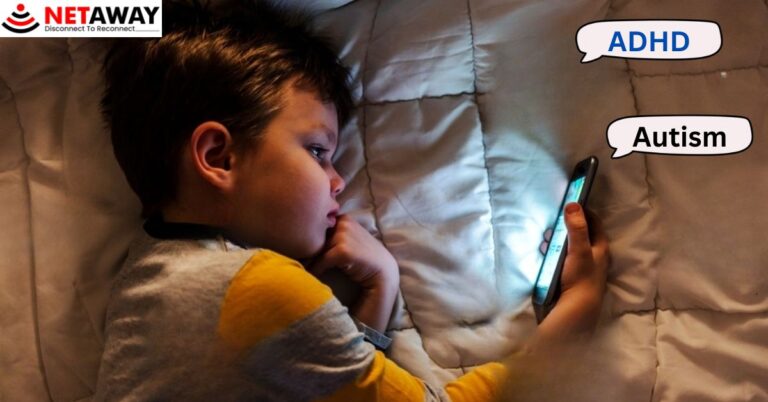
In recent years, there has been an increase in teenagers self-diagnosing themselves with mental health disorders on social media. This is a cause for concern for many parents, who worry that their children are not getting the proper diagnosis and treatment they need.
While this accessibility has empowered individuals to become more informed about their health, it has also led to a concerning trend of self-diagnosing conditions like ADHD, anxiety, and others. As parents grow increasingly worried about this phenomenon, it is essential to understand the reasons behind self-diagnosis, its potential impact, and how parents can foster healthy discussions with their children about mental health.
The Allure of Self-Diagnosis
- Social media platforms have become breeding grounds for health information, where anecdotal experiences and pseudo-scientific content are widespread. Teens, being tech-savvy, often come across posts describing symptoms of various disorders, including ADHD and anxiety, that resonate with their own struggles. The anonymity and comfort of sharing personal experiences online create an environment where self-diagnosis seems appealing.
The Dangers of Self-Diagnosis
- While the internet can be a valuable source of information, self-diagnosis poses several risks. Misinterpreting symptoms can lead to incorrect conclusions and unnecessary anxiety. Additionally, conditions like ADHD and anxiety require professional evaluation and diagnosis by qualified healthcare professionals. Relying on self-diagnosis can delay appropriate treatment and support, potentially exacerbating the condition and hindering personal growth.
Influences of Social Media
- Social media plays a significant role in shaping teenagers’ perceptions of health and mental health. Influencers, celebrities, and peer groups sharing their own experiences with disorders can inadvertently normalize self-diagnosis. Furthermore, social media algorithms often lead users down rabbit holes of related content, reinforcing preconceived notions and biases.
Understanding ADHD and Anxiety
- To address the issue of self-diagnosis, parents need to educate themselves about ADHD and anxiety disorders. The neurodevelopmental disorder ADHD is characterized by recurrent patterns of impulsivity, hyperactivity, and inattention. Anxiety disorders, on the other hand, encompass a range of conditions that cause excessive fear and worry. Gaining knowledge about these disorders helps parents have informed conversations with their children.
Creating Open Dialogues
- Maintaining open communication with teenagers is crucial. Parents should encourage their children to share their concerns and feelings without judgment. By fostering a safe space for discussions, parents can better understand their child’s perspective and correct any misconceptions about mental health.
Emphasizing professional evaluation
- Parents should stress the importance of seeking professional help when experiencing concerning symptoms. Encourage teenagers to discuss their feelings with a mental health specialist who can conduct a thorough evaluation and provide an accurate diagnosis. Highlight the benefits of professional guidance in managing and treating mental health conditions.
Promoting Mental Health Awareness
- To combat the stigma surrounding mental health, parents can actively promote mental health awareness within their families and communities. Encourage open conversations about emotions and feelings, emphasizing that seeking help is a sign of strength, not weakness.
Limiting Social Media Exposure
- While social media can be informative, excessive exposure can be detrimental. Set healthy boundaries on screen time and encourage teens to engage in other activities that promote well-being, such as hobbies, sports, or spending time with friends in person.
Seeking Support
- Parents themselves may experience anxiety or stress due to concerns about their child’s well-being. Seeking support from other parents, support groups, or mental health professionals can be beneficial in managing these feelings and gaining valuable insights.
Conclusion
The trend of self-diagnosis on social media is a concerning phenomenon for parents, particularly when it comes to mental health conditions like ADHD and anxiety. It is crucial for parents to engage in open dialogue with their teenagers, emphasizing the importance of professional evaluation and support. By promoting mental health awareness and setting healthy boundaries with social media, parents can empower their children to make informed decisions about their well-being and seek appropriate help when needed.
In a digital age where information is abundant, it is essential to differentiate between knowledge gained from reputable sources and the dangers of self-diagnosis. By working together, parents and teenagers can navigate social media’s complexities while prioritizing mental health and well-being.
How does social media distract students?
Social media distracts students by providing constant notifications, engaging content, and a desire for social validation. Students may spend excessive time on platforms like Facebook, Instagram, or TikTok, affecting their focus on studies. Parents can help by setting screen time limits, encouraging time management, and promoting offline activities to balance social media usage.
Are ADHD people successful?
Yes, individuals with ADHD can achieve great success in various areas of life. While ADHD may present challenges, it does not determine a person’s overall potential for success. With understanding, support, and appropriate strategies, parents can help their children with ADHD thrive academically, professionally, and personally.
How to win life with ADHD?
Winning life with ADHD involves developing coping strategies and seeking support. Minimize distractions from social media by setting time limits. Prioritize tasks, break them into smaller steps, and use tools like planners or reminders. Embrace self-compassion, focus on strengths, exercise, and maintain a healthy lifestyle for improved overall well-being.
What age is most addicted to social media?
Teenagers and young adults, often between the ages of 13 and 24, are the age group most dependent on social media. Social media platforms are quite enticing to this group because they offer opportunities for connection, validation, and self-expression. To establish a balanced online presence, parents should monitor their children’s social media activity and encourage healthy digital behaviors.
Why is instagram so addictive?
Instagram’s visually appealing material, consistent stream of updates, and interactive features like likes and comments, which cause a dopamine response, make it addicting. Users become engrossed and utilize it frequently and for extended periods of time due to its emphasis on personal validation, social connections, and tailored feeds.
